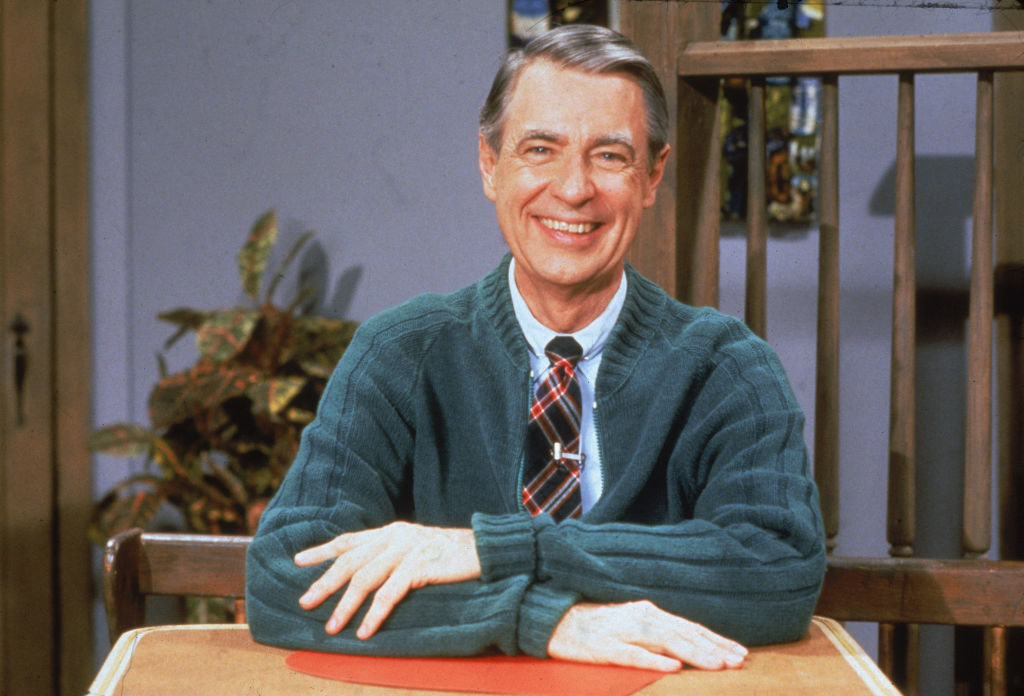
When senior Trump campaign adviser Mercedes Schlapp made a Twitter joke about Joe Biden’s town hall on Thursday night, she unwittingly gave the Democratic Presidential nominee what many considered to be a compliment. “Feels like I am watching an episode of Mister Rodgers [sic] Neighborhood,” she wrote in a now-viral tweet, sparking a dialogue on social media about the legacy of Fred Rogers, the late host of the long-running children’s television show Mister Rogers’ Neighborhood.
“Pretty telling that this crew thinks Mr. Rogers is the bad guy,” wrote Democratic strategist and former Hillary Clinton adviser Zac Petkanas in response to Schlapp’s tweet, while writer April Reign called Schlapp’s comment “the worst self-own I’ve seen this political season.”
But, though one might not expect it, this isn’t the first time that Rogers, an ordained Presbyterian minister who was staunchly apolitical in his public persona, has been caught in the middle of a political dispute—or the first time American polarization has manifested in competing opinions about his show.
Rogers, a quiet lifelong Republican, wasn’t vocal about his political beliefs, instead allowing his actions to speak to his belief system, which emphasized the values he encouraged for his young viewers on the show: being kind, accepting people as they are, and being able to express your feelings in a healthy way.
This credo manifested itself multiple times in subtly radical ways throughout the course of the 33 years that Mister Rogers’ Neighborhood was on the air. Rogers, a longtime pacifist, used the mercurial King Friday character in his program’s puppet show to express his antiwar sentiment during the Vietnam war. Another puppet, Lady Elaine Fairchild, embodied feminist values by pioneering space travel and anchoring her own news show in the Neighborhood of Make-Believe. And following the death of Martin Luther King Jr. in 1968, Rogers cast François Clemmons on the show, making Clemmons the first Black man to have a recurring role on an American children’s television show; the year following, Rogers and Clemmons washed their feet together in a foot bath, a delicate nod to the national dialogue about integration. (In his recent memoir, Clemmons described Rogers as a mentor and “surrogate father,” even though Rogers encouraged Clemmons, who is gay, to remain in the closet.)
Rogers died in 2003, two years after the final episode of his show, but in recent years, he has once again become a lightning rod for political controversy.
Even though Rogers was a Republican, some conservative commentators have seized on his persona as an illustration of the values they oppose. For example, in 2007, Fox & Friends aired a segment that called Rogers an “evil, evil man” for telling children that they were special, thus instilling a generation with an undeserved sense of entitlement. In 2019, Andrew Klavan, a Daily Wire host, also took issue with Rogers by criticizing his gentle demeanor, describing it as “metrosexual wimpiness.” At the same time, Rogers has enjoyed something of a posthumous renaissance, with a 2018 documentary and 2019 feature film stoking nostalgia for his time on the air—and emphasizing exactly the qualities that drew dismissive responses from his critics.
So, though Schlapp’s viral tweet may have seemed like a “self-own” to Biden supporters, it was in fact part of a long history of divisiveness surrounding Rogers. And there’s a good chance that if Rogers were alive today, he wouldn’t have aligned with the values of his longtime political party. In a 2018 Nightline interview, his widow Joanne Rogers said that President Donald Trump’s values are “almost completely opposite” from those of her late husband’s—and that the differences are so extreme, Rogers might have been driven to speak out politically.
“We have somebody leading us right now who is not a forgiver,” she said. “His values are very, very different from Fred’s values.”
More Must-Reads From TIME
- The 100 Most Influential People of 2024
- The Revolution of Yulia Navalnaya
- 6 Compliments That Land Every Time
- What's the Deal With the Bitcoin Halving?
- If You're Dating Right Now , You're Brave: Column
- The AI That Could Heal a Divided Internet
- Fallout Is a Brilliant Model for the Future of Video Game Adaptations
- Want Weekly Recs on What to Watch, Read, and More? Sign Up for Worth Your Time
Write to Cady Lang at cady.lang@timemagazine.com